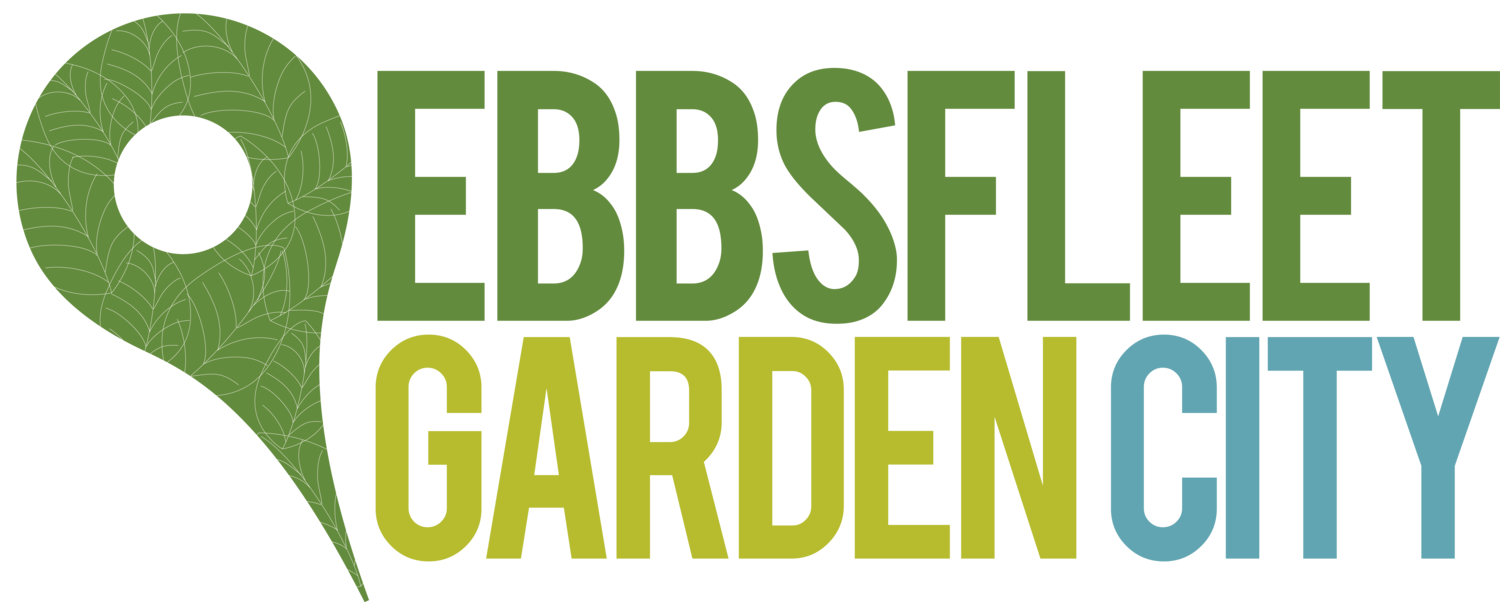Introduction
This document sets out EDC’s approach to assessing the sustainable performance of planning applications within the urban development area of Ebbsfleet. The document is intended to be used by applicants, Ebbsfleet Development Corporation’s planning team and the Ebbsfleet Design Forum to frame discussions around sustainability from the outset of a project. The assessment tables will also be used to report on sustainable performance to the planning committee at application stage.
The document provides two key tools for applicants;
• Assessment tables provide a framework for defining sustainable performance within a planning application. They have been developed to interpret local planning policy into clear performance levels that are consistent with national industry best practice, and to ensure delivery of quantifiable ambitions set out in Ebbsfleet’s Sustainable Framework.
• Simple and clear design guidance is provided for key project types. This guidance is intended to provide a basic framework for demonstrating project sustainability performance within the application documentation. The guidance will also be used during pre-application meetings to ensure key design approaches and technologies have been tested and incorporated where appropriate into projects at the earliest opportunity.
Our focus has been on clarity, consistency and practicality, using the performance levels that have been developed by industry to measure and report on design performance of projects in Ebbsfleet. The guide aligns local planning policy with EDC’s environmental ambitions and industry-defined best practice to provide a consistent methodology for assessing and reporting across Carbon, Water, Waste, Green infrastructure and Health and Wellbeing.
-
• Energy use: Ebbsfleet will aim to be net zero carbon upon completion.
• Energy generation & distribution: EDC projects aim to be exemplar in energy generation and usage.
-
• Water use: Minimise net water supply from outside the Ebbsfleet Garden City area. • Water quality: Provide access to a broad range of affordable leisure and sports activities within Ebbsfleet’s water courses.
• Flood resilience: EDC projects to prioritise green and blue sustainable drainage to achieve resilience to 1% annual exceedance probability.
-
• Waste reduction: Minimise construction and operational waste and maximise domestic recycling.
• Waste reduction: Promote circular economy through EDC procurement, partnerships, and investment.
• Healthy materials: Promote sustainable building materials within EDC projects (where appropriate).
-
• Environment: Create a healthy environment where people are empowered to enjoy a high quality of life and improved life expectancy, supported through sustainable buildings and civic infrastructure.
• Sustainable travel: Net zero travel-based carbon emissions per person per day.
• Healthy buildings: Deliver comfortable and accessible buildings
-
• Greening the city: To create a healthy, biodiverse and attractive landscape, including 400ha of newly accessible green and blue spaces that supports active lifestyles by 2035.
• Biodiversity: To achieve net positive species impact by 2035
-
• Enterprise and social inclusion: EDC has identified core social value TOMs (Themes, Outcomes and Measures) that focus on jobs, economic growth, community and environmental commitments and are based on activity identified as being able to meet local needs.
• Deliver an inclusive, diverse and creative economy.
Purpose of assessment tables
The assessment tables and guidance have been developed for;
EDC to provide a common understanding of sustainability and net zero aligned performance measures applicable across the Garden City.
Applicants to provide a clear set of sustainability and net zero aligned performance measures they are to achieve and with guidance on how to achieve them.
The assessment tables have been developed to enable EDC and applicants alike to deliver against;
Sustainability policies included in the development plans applicable to Ebbsfleet
The vision set out in the Ebbsfleet Sustainability Framework
The objectives defined in EDC’s Decarbonisation Plan
The performance measures and levels set out in the assessment tables aim to support all EDC projects being net zero carbon on completion of the Garden City, ensuring that carbon emissions are mitigated at every stage of the project’s life cycle.
Purpose, audience and application The expectation from EDC is that applicants will aim to meet the measures set out in the dark green box for each performance measure to achieve carbon net-zero performance and deliver the vision and planning policies for Ebbsfleet.
However we also recognise that technologies and practice is changing rapidly, and the performance level that can be achieved may also be dependent on the specifics of a site’s context and brief. Where applicants are unable to meet the dark green performance level, they should evidence in the supporting documentation the reasons why dark green can not be achieved.
In line with the NPPF’s presumption in favour of sustainable development, planning applications that place priority on Net Zero measures across all six priority will be considered exemplary.
Applicants are required to complete the relevant Sustainability Summary Assessment Table ( dependent on project type), and submit supporting documentation to evidence this performance level as detailed in EDC’s validation checklist. In instances where an applicant is delivering projects that cover more than one typology, assessments matrices must be submitted for each typology.
